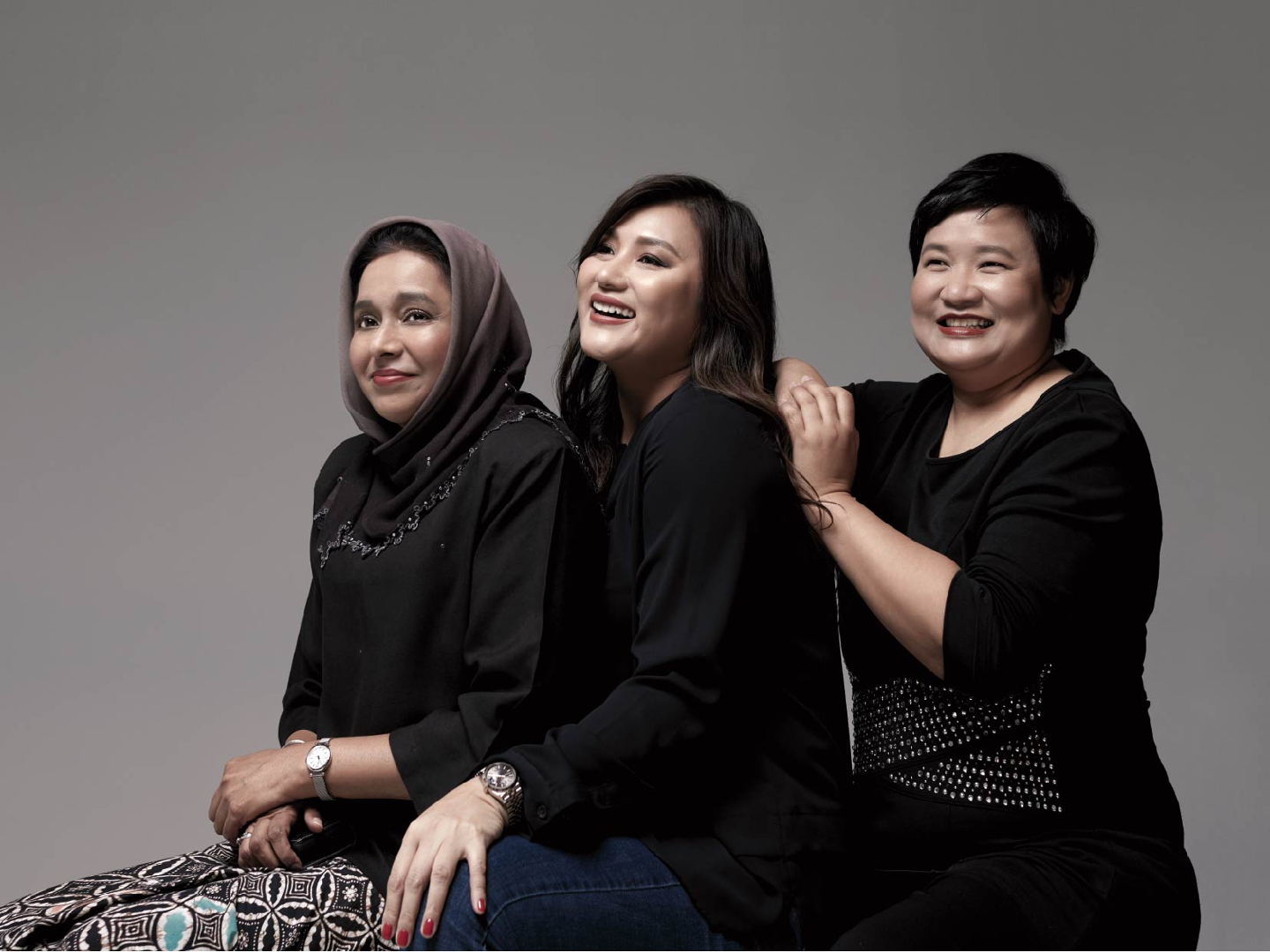
From left: Dr Jasmine Begum, Rina Neoh and Dr Leong Wai Yie (Photo: Shawn Lor for Blueprint Design & Studio)
Words that are used to laud women leading the pack in their chosen fields sometimes barely scratch the surface of how they worked their way to the top — by focusing on strengths, not weaknesses; influencing people opposed to a new idea; or taking a vital step to be more than “half a bucket of water”.
Rina Neoh, Dr Jasmine Begum and Dr Leong Wai Yie talk about their journeys, inspirations and challenges. They are among six recipients of the inaugural Tan Sri Datuk Napsiah Omar Women Leaders Award, presented in recognition of their role in their respective sectors — entrepreneurship/business, corporate management and technology.
The other winners are Professor Datuk Dr Adeeba Kamaruzaman (education), Datuk Dr Narimah Awin (public service) and Datuk Dr Hartini Zainudin (social & community service). Hartini, founder of Yayasan Chow Kit and Voice of the Children, also received the Overall Women Leader award.
The late Napsiah Omar was minister of national unity and social development and founder of the Women’s Institute of Management, organiser of the awards. WIM lauds all six for demonstrating integrity, courage and humility, and epitomising strength and resilience.
School of hard knocks graduate gives back
Rina Neoh, managing director Ficus Capital
Rifle Range flats, Penang’s first low-cost high-rise housing project built in the 1970s, was the neighbourhood Rina Neoh grew up in and made many friends. She started helping out at her mother’s home salon in their one-room unit from the age of eight. At 11, she was placed in her grandmother’s house in Lorong Seratus Tahun after her parents’ divorce. “I became mum’s shampoo girl at 14 because I was tall enough and continued to help her until she retired some 20 years ago.
“Childhood wasn’t that pleasant, at least that was what I thought as a kid. Looking back, I am proud of the colourful childhood Rifle Range gave me. It was a great training ground for what I am now, a seller. I don’t have any issue speaking to strangers, which explains why I excel in networking. I did many part-time jobs — modelling, teaching tuition — before turning 20 and earned my street-smart ‘diplomas’ when still young.
“Today’s world is so competitive, being academically good is not good enough. You need to have exposure in the school of hard knocks,” says the venture capitalist and angel investor who has a degree in computer science and an MBA in international business.
options01132.jpg
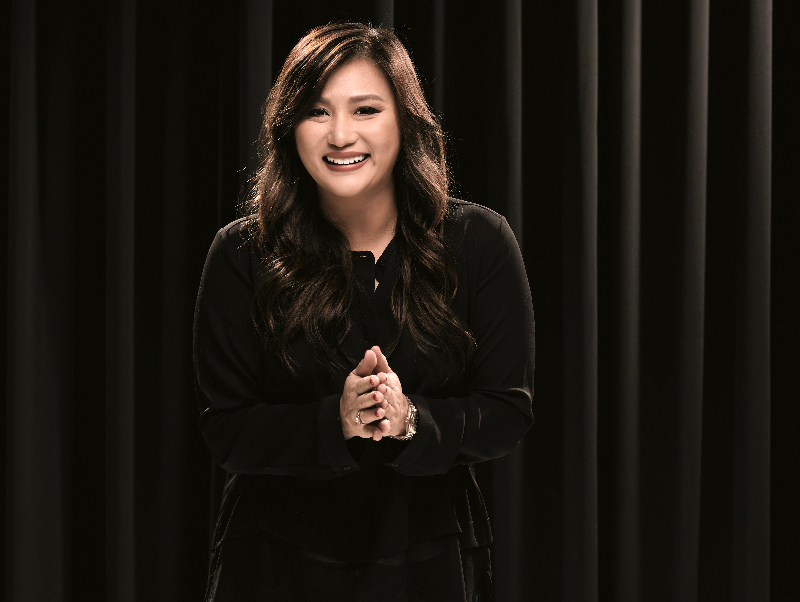
Inspiring those who are struggling up the corporate ladder and helping them to make connections are what Neoh does naturally in the course of her work as co-founder and managing director of Ficus Capital, the world’s first syariah-compliant venture capital (VC) firm, and as a senator representing Malaysia in the World Business Angel Forum. She is on the committees of WBAF’s Angel Investment Fund and Global Women Leaders.
Neoh is also on the advisory board of SBK Foundation, a women-led non-profit that helps narrow the financial and technology literacy gaps in rural communities in Bangladesh and South Asia.
She was voted one of the top 10 women venture capitalists in Singapore by the Women Founders Network in 2016, and named among the top 100 inspirational LinkedIn icons in Malaysia in 2020. Two years before that, she won the Asia Pacific Entrepreneurial Award for outstanding and exemplary achievements in entrepreneurship (financial sector), presented by Enterprise Asia Singapore.
Given her early exposure to business — Neoh’s school allowance came from profits her mum’s salon made and tips given by happy customers — she considers herself “an entrepreneur at heart and an investor by choice”.
In 2003, by chance, she joined a start-up that gave her the A-Z experience of working on an idea to an initial public offering, delisting and even board fights. After obtaining her MBA in 2006, she set up her first boutique investment company, Mercatus, which takes its name from mercato, the Italian word for market.
“We had five partners — myself and four gentlemen who were all at least 20 years older. When there was an investment of US$100,000, I would invest US$5,000 to US$10,000 while they handled the rest. But I did all the legwork. I am still grateful for the opportunity — sharks letting you swim with them and letting you have some of their leftovers. We ended up investing in more than 100 companies and was listed third on the ASX (Australian Securities Exchange).”
ficus_capital_team.jpg
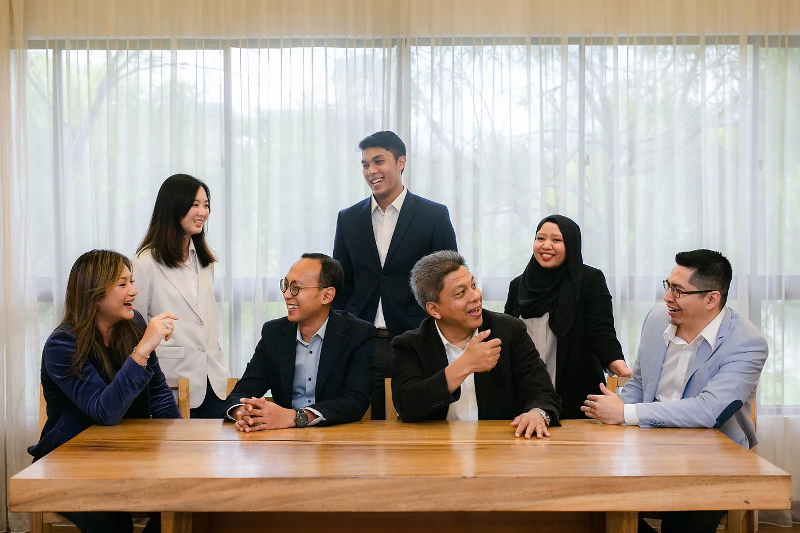
It was tough convincing old-school tycoons to invest in a pitch deck back then, Neoh says. Many were not tech-savvy and their first question was always, “What’s your guaranteed return?” Many ideas were snuffed out when these traditional business people put in a small sum of money and insisted they wanted a controlling stake.
“I am on a mission to change the perception of these tycoons about angel investing, one at a time. Ideas will not flourish if there is no angel investor; most will die and become statistics. We want to invest in ideas and transform them into business models, then fine-tune the model so it works and help raise more funds to scale it up.”
In 2018, she started Ficus Capital with a few good friends — fellow Malaysians who noticed the lack of a home-grown VC. They later realised the term itself was new to local investors, and potential limited partners were asking the same questions about guaranteed returns and dividends and “treating us like a bank”.
It was not easy raising money for Ficus Capital because venture capital business is about relationships, reputation and track records, Neoh explains. “GLCs (government-linked companies) and potential investors were telling us Ficus didn’t have a track record even though we, as individual founders, had our personal track records as angel investors, entrepreneurs or MDs of banks.
“Well, in life, you just have to knock on 1,000 doors to see if one leads to the right path. We’re extremely grateful to our high-net-worth individual investors as well as Mavcap (Malaysia Venture Capital Management), the anchor investor for Ficus’ RM60 million Fund 1.”
While funding is key, mentors and idols are important and lucky is the person who finds a mentor while still in school. Neoh met hers after joining a start-up that listed on the ASX. “My mentors were the start-up’s investor and chairman, and his inner circle after that.”
And if she has to name an idol, it would be Tan Sri Rafidah Aziz. “She is factual, direct and bold in her feedback, discussions and keynote addresses, and is able to blend confidence and wit.”
rina_neoh.jpg
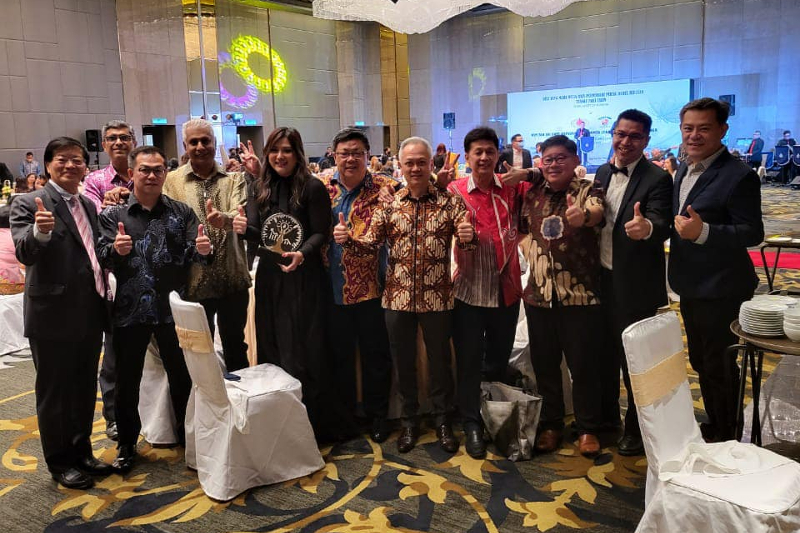
At the Tan Sri Datuk Napsiah Omar Women Leaders Award presentation in Kuala Lumpur in May, there was a table of boisterous men cheering for Neoh. “Yes, they were my colleagues, business partners, friends and mentors. I was so proud of these guys because they were comfortable among the 20 tables of women.
“The gender gap is so obvious in my line. I actually have an album for all the photos taken during work — you will find only one woman among the males.”
Being outnumbered by guys on the job is one thing; getting special treatment is another. Performance must be measured based on merit, she believes, and every individual should know her own strengths and weaknesses.
“I won’t recommend that anyone works on her weakness. We have only 24 hours a day, so enhance your strength. I have never seen an Olympic medallist who won gold for both swimming and the 100m at the same time.”
Neoh, who teaches transformational leadership at the Asian Institute of Digital Transformation, of which she is a founding member together with UnionBank of the Philippines, describes her management style as transformational instead of transactional.
“I’m pretty chill with my colleagues; productivity is more important than activity. Google is such a good teacher — you just have to ask, be a little smart to filter junk and you’ve got what you’re looking for. There’s hardly any excuse for anyone who says, ‘I don’t know’, especially in a meeting. By the way, I believe there are 1,000 reasons to do something or 1,000 excuses not to do it.”
20220516_213435.jpg
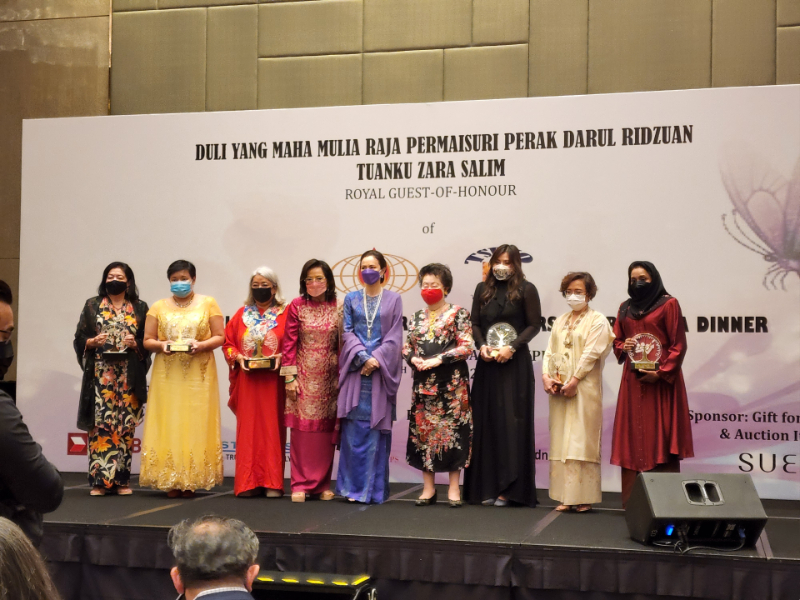
The Women Leaders Award presented by WIM is Neoh’s first gong from a women’s association, and she views it as a tiny step to “leverage her status and do something good”. But the most meaningful ‘award’ she has ever received has to be a paper medal made by children in Leyte, an island in the Philippines’ Visayas, who also sang for her when she visited them.
“As a child, I received kindness from strangers and pocket money for school funded by philanthropists. Neighbours in Penang gave us secondhand clothes and toys. I told myself that one day when I am able to, I want to pay it forward so kids like me will not have to walk the same path.
“I’ve stayed in the slums in Peru and helped build preschools, and travelled to East Timor many times to bring clean water to villages. I’m now focused on leveraging my chain of preschools in the Philippines to help marginalised children who don’t have access to education, especially in Leyte, which was badly hit by typhoons that left many children without parents.
“I believe we should transform charitable organisations into opportunity organisations, and those tasked to run them should find new ways to be self-sustainable. Charity galas and donations are strategies of the past.”
A lawyer passionate about public policy and technology
Dr Jasmine Begum, director of legal, corporate and government affairs, Microsoft SEA and New Markets
Jasmine Begum, who believes education is an equaliser and has to be equitable, recently put Malaysia on the world map as one of three members of the private sector selected to join the Internet Governance Forum’s 2022 Multistakeholder Advisory Group.
Being the only female representative at digital economy events and discussions is not unusual for Jasmine, who had a “very normal, typical Asian” childhood. Born in Penang but raised in Kuala Lumpur, she studied hard to do well in school and read ferociously. “It made me a serial learner, and knowledge, both learning and conveying, became important.”
Of course, there were the usual family expectations of what she should do when it came to her career. She ended up being a lawyer, with master’s degrees in law and development communications from the University of Reading, and a PhD in comparative law
from Universiti Islam Malaysia.
Conveying agility coupled with knowledge underscores her work in government relations and policy engagement, as well as legal and corporate affairs in the tech industry for Microsoft. Asked to elaborate, Jasmine says: “The focus of my public policy work is to advocate and advance the intersection between policy and technology, where policies made for the analogue world may not serve or fulfil what is needed for a digital environment. I work with government officials and senior policymakers to contribute to the development of digital-native policies.”
1options0113.jpg
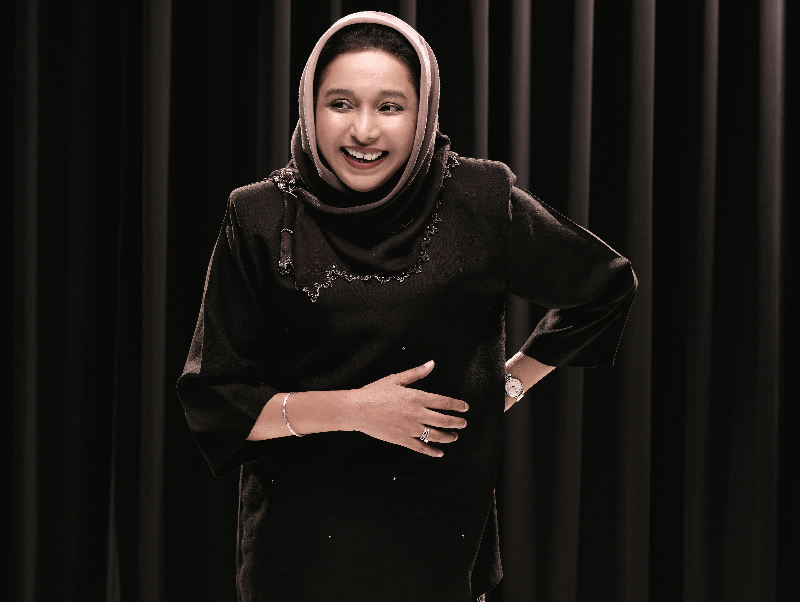
The aim is to build a robust and innovative policy environment that serves current needs and has a societal impact, especially when it builds in security and privacy by design.
With citizen services, education and healthcare going digital, technology advancement has become the lifeblood of the nation. So, it is crucial to communicate policy agenda, especially what it means to people, in a way that resonates with them.
“Most policy language tends to be legalese and complex, layer upon layer, and that’s the way it has always been,” Jasmine says. But when it is simplified — for example, after a Budget announcement, the media goes to great lengths to explain points using infographics — people will understand.
A law degree is traditionally viewed as a pathway to practice, but Jasmine found love in advancing public policy in technology. “I have always been passionate about development communications and my first exposure was in the United Nations”, where she worked in the executive office of the UN Secretary-General on peacebuilding and development, and gender mainstreaming for several years before returning to Malaysia.
“Developmental communication facilitates social development by engaging stakeholders, including policymakers and key influencers, to establish conducive environments, assess risks and opportunities and promote information exchange to create social change that is easily understood by the grassroots audience.”
mou-hrdf_png-1536x817.jpg
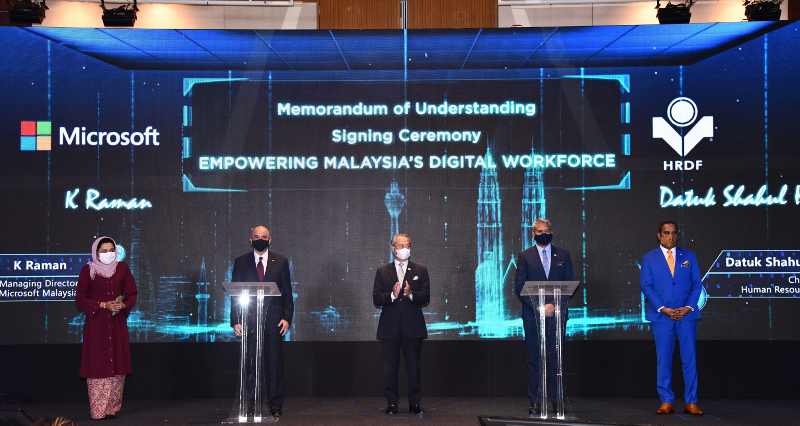
Public policy advocacy is a role that requires one to be open and gain the confidence of people, Jasmine says. “In any kind of advocacy, influencing people who like you is easy. But influencing those who are opposed to you is truly a challenge.”
Having the necessary information helps, alongside objectivity and perseverance. What is most important is having a reputation for doing what is right. “One has to be both a trusted thought leader as well as a respected influencer. That requires knowledge and depth, and subject matter expertise in the area you are advocating.”
There is a good number of women in public policy across the board in different disciplines, she notes. Gender has, at one point or another, been an obstacle, but nothing that cannot be overcome.
“I recognise there will always be naysayers, but I believe if we can keep pushing forward and making a difference, the impact is what matters, and it removes or lowers the barriers for the next generation.”
An average workday will see Jasmine engaging with stakeholders and government officials, reviewing policies and participating in industry dialogues, and having speaking engagements. She works with teams across the region and around the world.
“I empower teams to do their best work with an open and transparent growth mindset. We have fun,” she says.
parlimen-digital.jpg
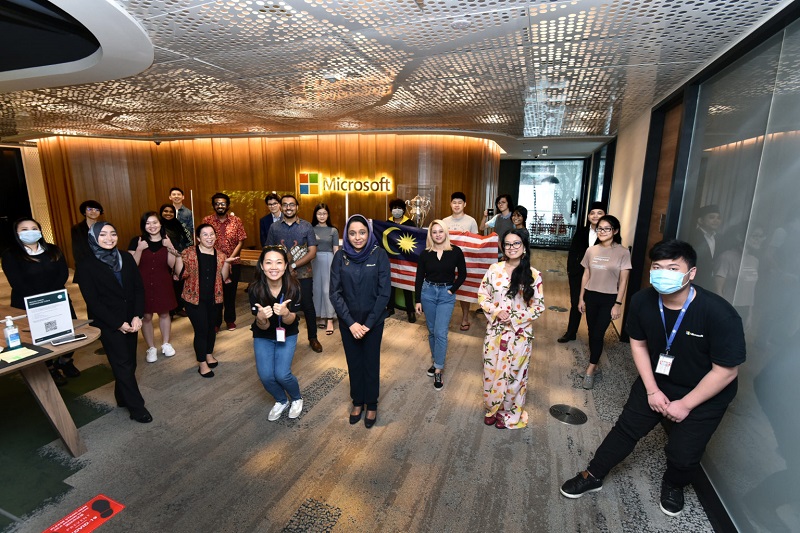
In 2020, Jasmine enabled Parlimen Digital, the world’s first youth-led digital “parliament” that serves as a platform to develop young leaders.
With the bulk of the younger workforce being digital natives, comments that they do not connect enough physically have surfaced. Does that affect the work she does?
“No, even prior to the pandemic, we were working remotely, as we had teams across the region. And they worked well, both online and offline. Different work requires different engagement and we have become adaptable.”
Does being a mother of two digital natives give her insight into how the young today approach technology?
“Yes, and so does working with colleagues. They don’t [view] technology as only an enabler. Their mindset of digital first has also changed how we approach problems and remove barriers.”
Breaking the mould in engineering
Dr Leong Wai Yie, vice-president, Institution of Engineers Malaysia
Leong Wai Yie did science in school but had no chance to touch and experience the fun parts because of a lack of lab equipment and facilities. Besides, the way the subject was taught was neither creative nor engaging.
Looking back, she says even the simplest activities can introduce children to scientific concepts and stimulate scientific thinking. Early science education can give them a strong foundation in terms of what is learnt, and how it is learnt, that will stand them in good stead later.
But science was far from Leong’s mind on her family’s poultry farm in Rawang, Selangor, where life was peaceful and happy for the second of five siblings, with no stress or study pressure. It was only in a private college, which she attended after failing to obtain a place in a government university, that she decided to enrol in a diploma programme in computer engineering because “if you join the workforce after SPM, you will only be half a bucket of water and nothing will happen”.
The only thing she knew about engineering then was that it involved “working with mud and bricks under the sun, in a very dirty and rude environment”. Her parents worried that she would give up halfway because the course, one of the most difficult academically, requires strategic, analytical and problem-solving skills and critical thinking.
1options011311.jpg
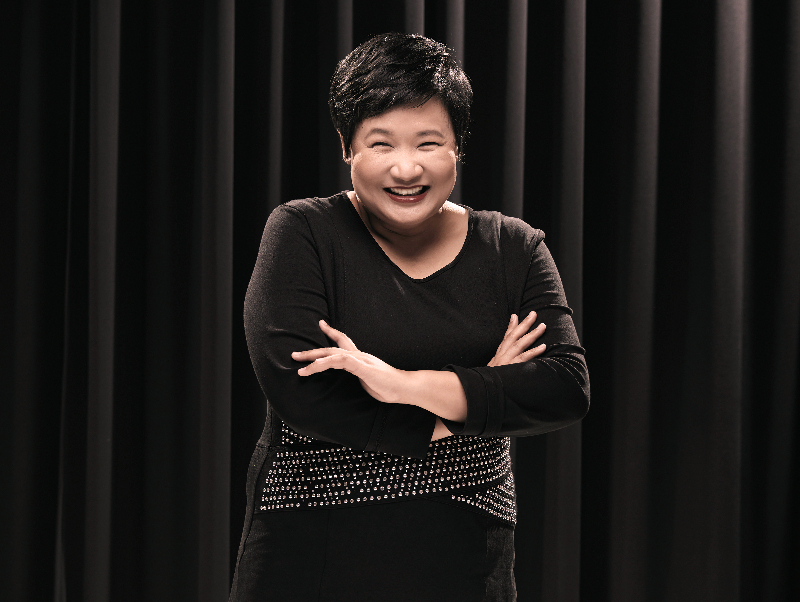
Leong’s dorm mates were engineering and computer science majors and she had noticed students with long measuring rulers on their back and using them on campus. “They looked awesome. They looked confident and smart.”
Also, the diploma would give her direct entry to a bachelor’s degree in electrical engineering at the University of Queensland, Australia, and after that, allow her to pursue a PhD.
Leong’s initial months Down Under were hard. Her English was poor and she lacked the confidence to speak in front of the Aussies, whom she could not understand because of their accent. She also worked in a restaurant in Brisbane’s Chinatown to earn pocket money. “In addition to the cultural differences, I felt very depressed.”
Fortunately, she met a group of Singaporean students who impressed her with their attitude to learning. She realised the importance of reading and hard work, and her grades soon improved by leaps and bounds. In 2004, she took part in the Australian Research Trailblazer Innovation Award as a PhD student and beat more than 100 doctors and professors to the A$8,000 prize. It was the turning point.
She became a student leader and was active in club activities, setting up the Sanskrit Society and representing the university at Brisbane Women in Engineering events.
“If you’re enthusiastic enough, there’s no reason you shouldn’t apply to do engineering, male or female. Like being a male hairdresser, it’s about skills. It is natural to feel nervous about stereotypes, but that shouldn’t be a reason not to do what you love,” says Leong, who in April won the 2021 WFEO Gree Women in Engineering Award, which recognises women engineers who have shown professional excellence and made an impact in their work, and are role models and leaders in their field. She is the first Malaysian to receive an award from the World Federation of Engineering Organizations.
Still, women today occupy just over a quarter of the roles in the engineering and technology sector, Leong laments. “Women are discouraged from pursuing jobs in technology because of the ‘brogrammer’ tech culture brought in from college campuses,” she adds, quoting females working in the field.
There is a lack of role models for women within the sector mainly because of the stereotypical notion of “boys being better in science and maths”. With fewer women studying technology-based subjects at school and university, there is a smaller talent pool for employers to choose from, compared with male candidates.
Women actually have an advantage in engineering, Leong says. Teams with women engineers benefit from diversity of thought and approach, as well as a wide range of backgrounds and experiences. “That, in turn, can lead to identifying a larger set of problems and solutions.”
To address the scarcity of women in the science and engineering workforce, the WFEO, Institution of Engineering and Technology (IET), and International Network of Women Engineers and Scientists established a women-in-engineering mentorship programme for more than 1,000 participants.
Leong, the first female chairman of IET Malaysia, says the outcome of this programme demonstrates that women in engineering who are assigned a female peer mentor experienced more belonging, motivation and confidence in what they are doing, better retention in engineering majors, and have greater career aspirations in the industry.
On her part, Leong has conducted more than 500 talks, seminars and conferences to mentor and support women in the field, and promotes Asean and global engineering and science via workshops, seminars, publications, conferences and the media.
She represents women in the science, technology, engineering and mathematics (STEM) platform and is passionate about promoting equity, diversity and inclusion in engineering. She is also specialising in medical signal processing and telecommunications engineering. The novel bio-informatics technique has been commercialised and licensed to healthcare companies to extract important features on the signals.
Despite her many achievements, including writing books on innovations in electronics and biomedical engineering and 20 gold medals at international wushu championships, Leong has not been spared gender discrimination.
“I have been unfairly assigned inferior accounts compared to men and experienced barriers that prevented me from reaching upper-level roles in leadership and the C-Suite. I’ve been segregated to lower-level jobs in low-paying industries because of biases and the glass ceiling. These disparities in opportunities prevent me from excelling in my career and inhibit my ability to make the same amount [of money] as men.”
She strongly advocates that women be given equal opportunities to pursue, and thrive in, STEM careers. “This will narrow the gender pay gap, enhance their economic security, ensure a diverse and talented STEM workforce and prevent biases in these fields.”
This article first appeared on July 18, 2022 in The Edge Malaysia.


